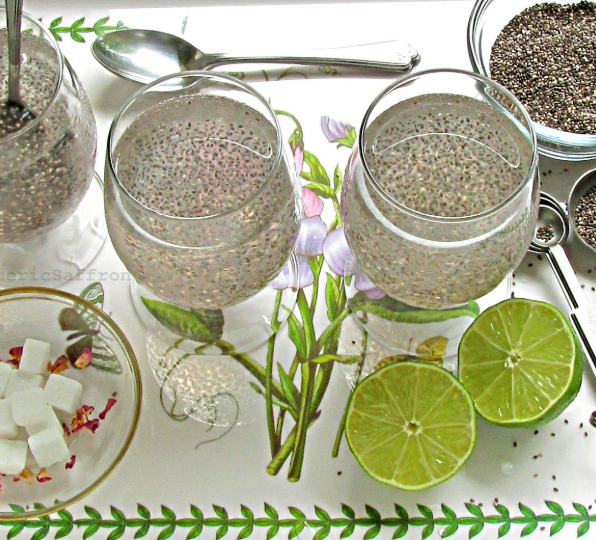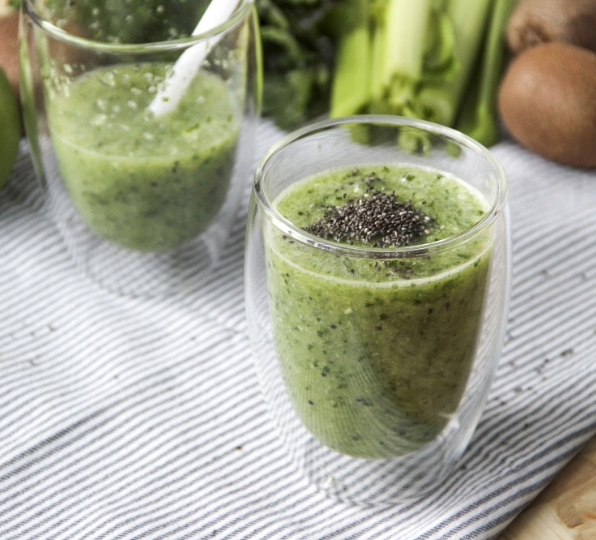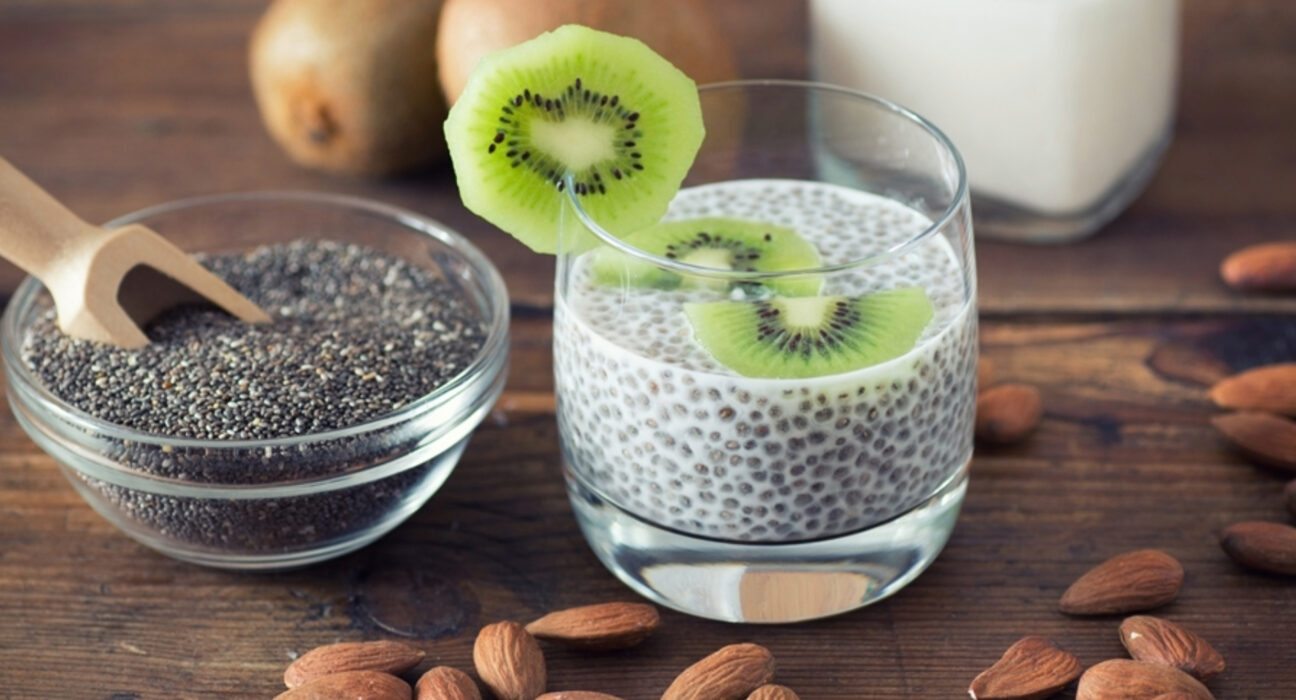Introduction:
In recent years, chia seeds have become more well-known as a nutrient-dense, adaptable superfood. These little seeds may be tiny, but they’re incredibly nutritious and have a host of positive health effects. We’ll go over seven scientifically proven health benefits of chia seeds in this guide to help you include this superfood in your diet and achieve optimal health.
1. Rich Source of Nutrients
Chia seeds may be small, but they pack a mighty nutritional punch, making them a powerhouse addition to any diet. Despite their tiny size, these seeds are loaded with essential nutrients that can provide a wide range of health benefits.
One of the key nutritional benefits of chia seeds is their high fiber content. Fiber is essential for digestive health, promoting regular bowel movements, and preventing constipation. Additionally, fiber helps to regulate blood sugar levels, reduce cholesterol levels, and promote feelings of fullness and satiety, making it an important nutrient for overall health and well-being. In just one ounce of chia seeds, which is approximately two tablespoons, you can get a significant portion of your daily recommended intake of fiber.
Chia seeds are also an excellent source of protein, particularly for those following a plant-based diet. Protein is essential for muscle repair, growth, and maintenance, as well as for supporting overall health and well-being. Incorporating protein-rich foods like chia seeds into your diet can help ensure that you’re meeting your daily protein needs and can help keep you feeling full and satisfied throughout the day.
Furthermore, chia seeds are one of the richest plant-based sources of omega-3 fatty acids, particularly alpha-linolenic acid (ALA). Omega-3 fatty acids are essential fats that play a crucial role in brain health, heart health, and inflammation regulation. Consuming foods rich in omega-3 fatty acids, like chia seeds, can help reduce the risk of heart disease, improve cognitive function, and decrease inflammation in the body.
In addition to fiber, protein, and omega-3 fatty acids, chia seeds are also packed with antioxidants, vitamins, and minerals. These powerful compounds help protect the body from oxidative stress and inflammation, reducing the risk of chronic diseases like heart disease, cancer, and diabetes.
Overall, chia seeds are a rich source of essential nutrients that can provide a wide range of health benefits. Whether added to smoothies, yogurt, oatmeal, or baked goods, chia seeds are a versatile and delicious way to boost your intake of fiber, protein, omega-3 fatty acids, and other key nutrients, supporting overall health and well-being.
2. Supports Digestive Health
Chia seeds are renowned for their ability to support digestive health, primarily due to their high content of soluble fiber. Soluble fiber absorbs water and forms a gel-like substance in the digestive tract, which plays a crucial role in maintaining digestive regularity and promoting overall gut health.
When consumed, chia seeds absorb water and expand in the digestive tract, creating a gel-like substance that slows down the digestive process. This gel moves through the digestive system, helping to regulate the absorption of nutrients and promoting feelings of fullness and satiety. By slowing down digestion, chia seeds can help prevent rapid spikes and crashes in blood sugar levels, which is beneficial for managing appetite and supporting weight management efforts.
Furthermore, the soluble fiber in chia seeds acts as a prebiotic, providing fuel for beneficial bacteria in the gut. These probiotics play a vital role in maintaining a healthy balance of gut microbiota, which is essential for proper digestion, nutrient absorption, and immune function. By promoting the growth of beneficial bacteria, chia seeds can help support a healthy gut microbiome and reduce the risk of digestive issues such as constipation, diarrhea, and bloating.
In addition to soluble fiber, chia seeds also contain insoluble fiber, which adds bulk to stool and helps promote regular bowel movements. This combination of soluble and insoluble fiber works together to support digestive regularity and prevent constipation, ensuring that waste moves smoothly through the digestive tract and is efficiently eliminated from the body.
3.Promotes Heart Health
Chia seeds are renowned for their heart-healthy properties, primarily due to their high content of omega-3 fatty acids, particularly alpha-linolenic acid (ALA). These essential fatty acids play a crucial role in promoting heart health and reducing the risk of cardiovascular disease.
One of the key benefits of omega-3 fatty acids is their ability to reduce inflammation throughout the body. Chronic inflammation is a significant risk factor for heart disease, as it can damage blood vessels and contribute to the development of atherosclerosis, a condition characterized by the buildup of plaque in the arteries. By reducing inflammation, omega-3 fatty acids found in chia seeds help protect against the development and progression of atherosclerosis, ultimately lowering the risk of heart disease and stroke.
Furthermore, consuming chia seeds regularly has been shown to help lower blood pressure, another important factor in maintaining heart health. High blood pressure, or hypertension, is a leading cause of heart disease and stroke, as it puts added strain on the heart and blood vessels. The omega-3 fatty acids in chia seeds help relax blood vessels and improve blood flow, which can help lower blood pressure and reduce the risk of cardiovascular complications.
In addition to reducing inflammation and lowering blood pressure, chia seeds have been shown to improve cholesterol levels, another critical aspect of heart health. High levels of LDL (bad) cholesterol and triglycerides are associated with an increased risk of heart disease, while high levels of HDL (good) cholesterol are protective. The omega-3 fatty acids in chia seeds help raise HDL cholesterol levels and lower LDL cholesterol and triglyceride levels, promoting a healthier lipid profile and reducing the risk of heart disease.
Overall, chia seeds offer a natural and effective way to support heart health and reduce the risk of cardiovascular disease. By incorporating chia seeds into your diet regularly, you can take advantage of their omega-3 fatty acids to reduce inflammation, lower blood pressure, and improve cholesterol levels, ultimately supporting a healthy heart and reducing the risk of heart disease and stroke.
4. Stabilizes Blood Sugar Levels
Chia seeds offer significant benefits for stabilizing blood sugar levels, making them an excellent choice for individuals concerned about diabetes or insulin resistance. One of the key factors contributing to their ability to regulate blood sugar is their low glycemic index (GI). The glycemic index measures how quickly carbohydrates in a food raise blood sugar levels. Foods with a low GI cause a gradual increase in blood sugar, while those with a high GI cause a rapid spike followed by a crash.
Chia seeds have a remarkably low glycemic index, which means they cause a slow and steady rise in blood sugar levels when consumed. This gradual increase helps prevent sudden spikes in blood sugar and reduces the risk of experiencing subsequent crashes. By promoting stable blood sugar levels, chia seeds can help individuals with diabetes or insulin resistance better manage their condition and minimize the need for insulin or other medications.
Moreover, the high fiber content in chia seeds plays a crucial role in stabilizing blood sugar levels. Fiber slows down the digestion and absorption of carbohydrates, preventing them from being rapidly converted into glucose and released into the bloodstream. This helps regulate blood sugar levels and reduces the risk of sudden spikes. Additionally, fiber promotes feelings of fullness and satiety, which can help prevent overeating and excessive calorie intake, further supporting blood sugar control.
Furthermore, chia seeds are rich in protein, which also contributes to their ability to stabilize blood sugar levels. Protein helps slow down the absorption of carbohydrates and promotes a gradual release of glucose into the bloodstream, preventing sharp fluctuations in blood sugar levels. By incorporating protein-rich foods like chia seeds into meals and snacks, individuals can support balanced blood sugar levels throughout the day.
5. Promotes Bone Health
Chia seeds are renowned for their nutritional profile, and when it comes to bone health, they shine particularly bright. Packed with essential minerals like calcium, phosphorus, and magnesium, chia seeds offer a natural and effective way to support bone strength and density.
Calcium is perhaps the most well-known mineral for bone health, as it plays a critical role in bone formation and maintenance. Chia seeds are an excellent plant-based source of calcium, making them an ideal option for individuals who may not consume dairy products or other traditional sources of calcium. Incorporating chia seeds into your diet can help ensure that you’re meeting your daily calcium needs, supporting bone health and reducing the risk of conditions like osteoporosis, which is characterized by weakened and brittle bones.
In addition to calcium, chia seeds are rich in phosphorus, another essential mineral for bone health. Phosphorus works alongside calcium to form the structural matrix of bones and teeth, helping to maintain their strength and integrity. By providing a generous dose of phosphorus, chia seeds support overall bone density and reduce the risk of fractures and other bone-related issues.
Furthermore, chia seeds boast an impressive magnesium content, which further enhances their bone-strengthening properties. Magnesium is involved in numerous biochemical processes in the body, including bone metabolism and mineralization. Adequate magnesium intake is essential for maintaining optimal bone density and preventing bone loss associated with aging. By incorporating magnesium-rich foods like chia seeds into your diet, you can support healthy bones and reduce the risk of osteoporosis and other bone-related conditions.
6. Aids Weight Loss
Chia seeds have garnered attention as a superfood for their impressive nutritional profile, and when it comes to weight loss, they offer significant benefits. Thanks to their high fiber and protein content, chia seeds can be a valuable addition to a weight loss diet, aiding in appetite control and promoting feelings of fullness and satisfaction.
One of the key mechanisms by which chia seeds support weight loss is through their high fiber content. Fiber is known for its ability to promote feelings of fullness and satiety, which can help reduce overall calorie intake and prevent overeating. Chia seeds are particularly rich in soluble fiber, which absorbs water and forms a gel-like substance in the stomach. This gel slows down the emptying of the stomach and delays the absorption of nutrients, leading to prolonged feelings of fullness and reduced appetite. By including chia seeds in meals or snacks, individuals can curb cravings and better manage their hunger, ultimately supporting weight loss efforts.
Additionally, the protein content in chia seeds plays a crucial role in promoting weight loss and supporting overall health. Protein is known for its ability to regulate hunger hormones, including ghrelin and leptin, which signal feelings of hunger and fullness to the brain. By consuming protein-rich foods like chia seeds, individuals can help control appetite and reduce the likelihood of overeating. Furthermore, protein is essential for muscle growth and repair, which is particularly important during weight loss to preserve lean muscle mass and support metabolic health.
Incorporating chia seeds into meals and snacks can be a simple and effective strategy for supporting weight loss goals. Whether sprinkled on yogurt, added to smoothies, or used as a topping for salads, chia seeds provide a convenient and versatile way to boost fiber and protein intake, promote feelings of fullness, and support overall health and well-being. By incorporating chia seeds into a balanced diet and lifestyle, individuals can harness their weight loss benefits and move closer to their health and fitness goals.
7. Boosts Energy and Endurance
Chia seeds have long been revered for their ability to provide a sustained source of energy and endurance, a reputation that dates back to ancient civilizations such as the Aztecs and Mayans. These tiny seeds pack a powerful nutritional punch, offering a balanced combination of carbohydrates, protein, fiber, and healthy fats that can fuel the body and support optimal performance.
One of the key factors contributing to the energy-boosting properties of chia seeds is their impressive nutrient profile. Despite their small size, chia seeds are packed with essential nutrients that play a vital role in energy metabolism and endurance. Carbohydrates are the body’s primary source of energy, and chia seeds provide a rich source of complex carbohydrates that are digested slowly, providing a steady and sustained release of energy over time. Additionally, the protein content in chia seeds helps to support muscle function and repair, which is essential for endurance athletes and individuals engaging in intense physical activity.
Furthermore, chia seeds are rich in dietary fiber, which not only supports digestive health but also helps regulate blood sugar levels and prevent energy crashes. The soluble fiber in chia seeds forms a gel-like substance in the stomach, which slows down the absorption of carbohydrates and sugars, providing a more stable and sustained source of energy. This can be particularly beneficial for athletes and active individuals looking to maintain energy levels and endurance during prolonged exercise sessions.
In addition to their energy-boosting properties, chia seeds are also rich in healthy fats, including omega-3 fatty acids. These fats play a crucial role in supporting cardiovascular health, reducing inflammation, and enhancing overall endurance and performance. By incorporating chia seeds into their diet, athletes and active individuals can benefit from a natural and sustainable source of energy that can help fuel their workouts, enhance endurance, and support optimal performance and recovery.
Whether added to smoothies, sprinkled on top of yogurt, or used to make energy bars and snacks, chia seeds offer a convenient and versatile way to boost energy and endurance naturally. By incorporating these nutrient-rich seeds into their pre-workout or mid-exercise routine, individuals can harness their energy-boosting properties and power through their workouts with ease.


Conclusion:
Chia seeds are more than just a trendy superfood – they’re a nutritional powerhouse packed with essential nutrients and health-promoting properties. From supporting digestive health and heart health to stabilizing blood sugar levels and aiding weight loss, the benefits of chia seeds are vast and impressive. By incorporating chia seeds into your diet in various ways, such as adding them to smoothies, oatmeal, yogurt, or baked goods, you can unlock their full potential and reap the many rewards they have to offer for your overall health and well-being.












